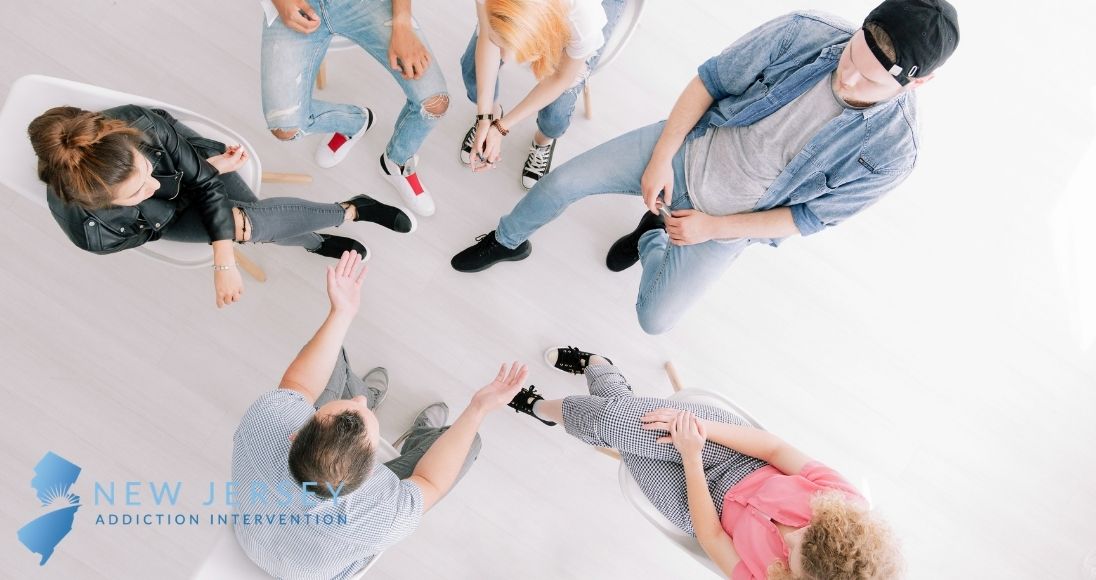When you first begin your recovery journey, you will likely be sent to a residential detox facility or inpatient rehab center where you have to live at the treatment facility throughout your stay. While severe addictions are best addressed in an inpatient setting, some people may benefit from outpatient rehab. Additionally, you may be referred to an outpatient rehab in New Jersey after you finish the inpatient level of care.
Outpatient rehab is ideal for anyone who is motivated to stay sober but in need of flexibility that is not offered by a residential program. There are many types of outpatient rehab, so you will be able to find the one that meets your unique needs.
How Does Outpatient Rehab Work?
Outpatient rehab requires you to manage your day-to-day responsibilities while also staying sober. In other words, outpatient allows you to live at home, care for your children, stay at a sober living, or continue working your job while participating in substance abuse treatment. During outpatient, you are expected to travel to the treatment facility for your therapy sessions, take random drug tests, and schedule regular meetings with your substance abuse counselor.
Treatment Therapies
Perhaps the most important aspect of outpatient rehab is the therapies offered. While all outpatient programs are different, there are three basic types of therapies that are used during outpatient rehab.
1. Individual therapy – These sessions involve you and your substance abuse counselor. Individual therapy allows you to explore the reasons for your substance abuse and how you can overcome those issues. One-on-one sessions can also provide mental health counseling, recovery coaching, and regular treatment evaluations. These individual sessions allow your counselor to monitor your progress and adjust your treatment plan accordingly.
2. Group therapy – These sessions involve small and large groups. They show you that you are not alone in your struggles and allow you to connect with like-minded individuals. In a safe and trusting environment, group therapy allows you to process your feelings in a group and obtain support. There are many different kinds of group therapy, including:
- Dual diagnosis therapy
- Trauma and PTSD therapy
- Gender-specific therapy
- Talk therapy (psychotherapy)
- Motivational Interviewing (MI)
- Stress or anger management
- Relapse prevention
3. Family behavior therapy – Family support is an important part of recovery. These sessions involve you, your family, and a therapist. Family therapy aims to heal issues within the family, improve communication skills, and boost mutual support within the family unit.
Types of Outpatient Rehab in New Jersey
Outpatient rehab refers to addiction treatment programs that do not take place on a residential basis. However, there are many different formats outpatient rehab may take, and each one is unique.
Day Programs
Day programs may also be referred to as partial hospitalization programs (PHP). This is the highest level of outpatient care where patients meet 5-7 days a week for multiple hours each time. If you enroll in a day program, you may participate in a similar treatment plan as you would at an inpatient facility. The only difference is that you are able to return home or to your sober living in the evening.
This is a highly intensive level of care that is best for people with more severe addictions. It is also considered a step-down from inpatient rehab. By providing many hours of therapy and a lot of support, anyone can benefit immensely from a day program in New Jersey.
Intensive Outpatient Programs (IOP)
IOP programs, in terms of intensity, are in-between day programs and standard outpatient programs. They typically require you to attend therapy sessions 4-5 days each week for several hours at a time. While IOP is more flexible than a day program, it still provides substantial support and patient monitoring.
As your treatment goals are met, the time you will need to spend in IOP may decrease. Eventually, you will transition out of IOP into a standard outpatient level of care.
Standard Outpatient (OP)
Once you complete IOP, most of your care will focus on relapse prevention strategies and milestone celebration. Outpatient programs (OPs)meet 2-4 times each week for one or two hours at a time. These group sessions will give you an opportunity to discuss any struggles you have experienced or share your successes with the group. Additionally, you will have one individual therapy session each week where you touch base with your substance abuse counselor.
Continuing Care Programs
OP is the lowest level of outpatient care in New Jersey, however, recovery is a life-long process that usually requires continuing care. Examples of continuing care programs include:
- 12-Step groups (Alcoholics Anonymous, Narcotics Anonymous, Cocaine Anonymous)
- 12-Step alternatives (SMART Recovery, Celebrate Recovery, LifeRing)
- Alumni groups
- Individual counseling
- Sober living homes
Some of these options are free while others will cost you money. Your substance abuse counselor can make recommendations to you regarding what services you can benefit from after outpatient treatment.
Find an Outpatient Rehab Program in New Jersey Today
Our team at New Jersey Addiction Intervention is dedicated to helping you find the right outpatient rehab near you. We work with the highest-rated addiction treatment programs in New Jersey, and our tested comprehensive evaluation will help you find a rehab center that can help you get back on your feet. Don’t wait any longer – call us today to find an outpatient rehab in New Jersey or to figure out if you are a good candidate for outpatient.
Medically Reviewed: June 3, 2021

All of the information on this page has been reviewed and verified by a certified addiction professional.

